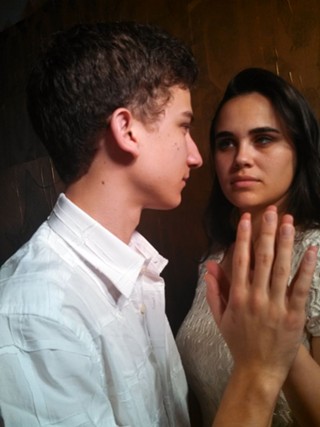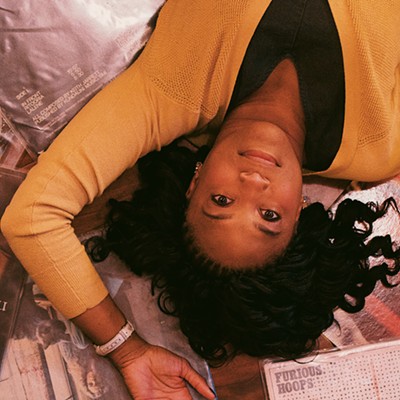It was Jean-Paul Sartre who insisted that "Hell is other people." Even so, we just can't stay away from one another, and the inherent drama in every human relationship works inexplicably like the petrol that keeps our internal engines running.
In short, all you need is Hell. The rest will take care of itself.
The yin/yang of the male/female relationship was famously explored by the Greek playwright Euripides in the tragedy Medea, which was staged here in Savannah, quite memorably, just about a month ago.
The unspeakably tragic couple (Medea and her husband Jason) live again, in a sense, in the one-act play Purgatorio, from the Chilean playwright Ariel Dorfman.
Two characters, called Man and Woman, are in that color-less, form-less place called Purgatory. With one or the other dressed in the clinical white coat of a therapist, they spend eternity interrogating each other.
"When I first picked up the play, what I loved was that you didn't know it was Jason and Medea for the first 23 pages," says Alexander Nathan Kanter, who's directing Purgatorio Oct. 3 and 4. "You are watching an interrogation. And we know something has happened; the audience is trying to piece it together."
It's pretty intense stuff.
"Even once you find out who they are, the whole point of this play is it humanizes Medea and Jason. And makes then Man and Woman. It's a story about love and redemption — granted, they created some ridiculous crimes in their lives — not about the Greek tragedy of Medea."
Whether the characters are named Jason, Medea, Man, Woman or You and I, their backstabbing back-and-forth is relevant to us all.
"Is it a fight?" Kanter asks. "Is it a battle to the finish? Or is it a meeting of minds, a meeting in the middle? And I think that's universal."
This "therapy loop" just might result in some real understanding, he adds. "Dorfman writes with a very humanist perspective. And therefore there's a positive — there's a hopeful, optimistic ending. It's not what we expect, but there's definitely a positivity involved. And hope in the human condition."
Kanter, who's producing and directing Purgatorio as the graduate thesis for his MFA in Performing Arts from SCAD, has cast Amaya Murphy (Agnes of God, The Three Musketeers) as Woman, and Daniel Thrasher (She Kills Monsters) as Man.
And he's staging it — with set designer Chris Schenning — in the least likely place: The second floor "event space" at the Sparetime.
"How do we take classical works and make them relevant to modern audiences?" Kanter says. "How do we make them adaptable? That can be through adaptations, such as what I'm doing, but there's more to it than that. One of the things you have to do is change the venue. Think outside the box. And a big part of that is, get rid of the gap between audience and actor."
And it doesn't end there. "We're also staging it in the round," Kanter adds, "so the audience completely surrounds the action — therefore, they are part of the action. Whatever you see, as an audience member, you're also seeing 20 other audience members on the other side of the action."
As an actor, performing in the round is "incredibly scary," according to Kanter, "because there's no comfort zone. There's no back wall that you can hide against. And you're not in charge of what someone sees.
"That's one of the reasons the Sparetime works so well. I don't want the audience to be able to distance themselves and check out.
"For the hour and 15 minutes that you're watching this show, you are a part of it. You want to be engaged."






























